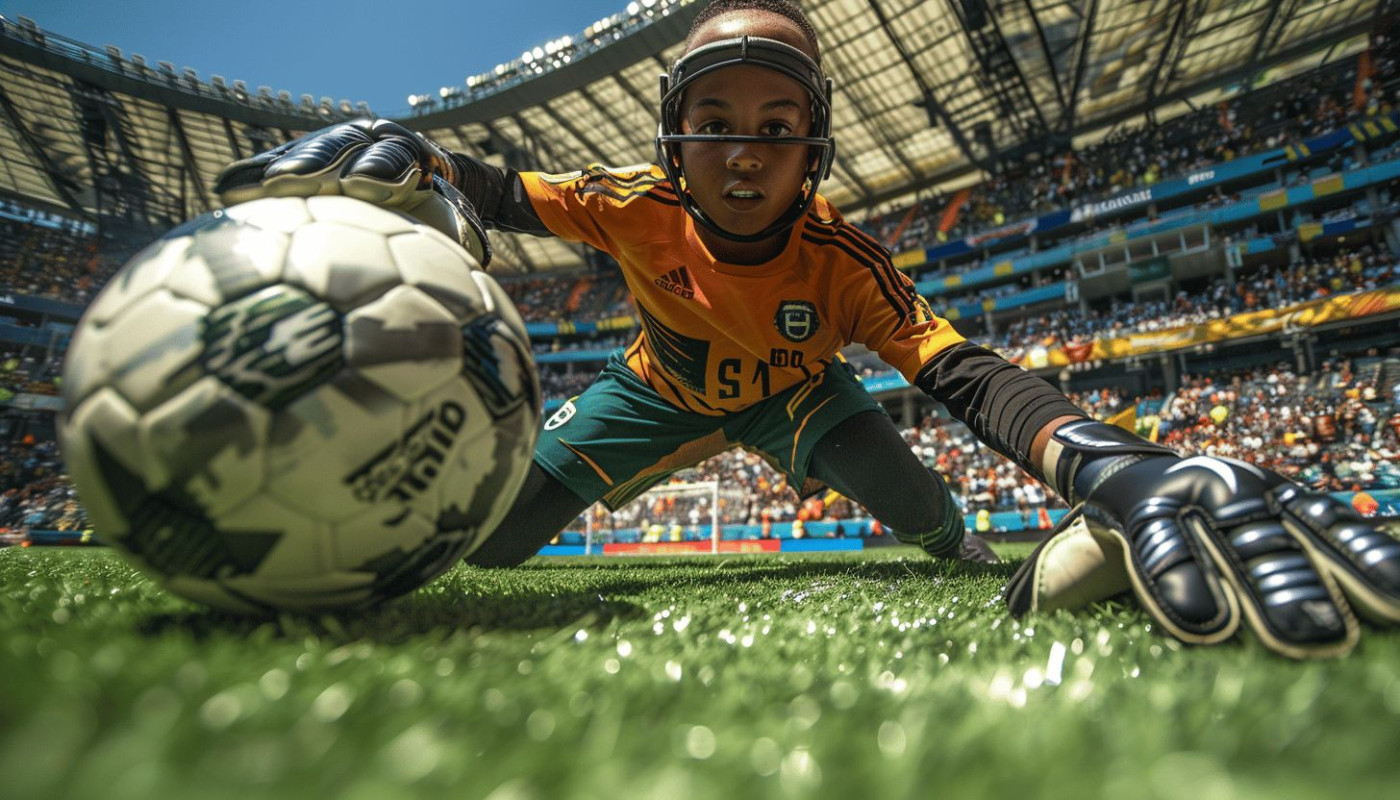Table of contents
The international football stage has become a vibrant showcase for youthful exuberance and raw talent. With each tournament, a new wave of young athletes emerges, redefining the boundaries of the beautiful game and igniting the passions of fans worldwide. This examination delves into the significant influence that these emerging stars have on the dynamics of international competitions, setting the scene for a thrilling narrative of transformation and rejuvenation in the sport.
The Rising Stars Phenomenon
In the arena of international football, the emergence of young athletes frequently serves as a catalyst for heightened excitement and competition. These emerging talents, often referred to as "athletic phenomena," bring a fresh dimension to the sport, injecting youthful energy that has a dynamic impact on both the pace and spirit of the game. Their participation reinvigorates established teams and challenges the status quo, creating an environment where experiential wisdom meets vibrant new skill sets.
Within this landscape, generational talents emerge—players whose abilities are so pronounced that they are seen as once-in-a-lifetime finds. The attention they draw is not merely due to their potential but also because of their ability to shape the dynamics and tactics of a team, making the unpredictable nature of international tournaments even more enthralling. As the head of youth development for a major football association, I can attest to the meticulous nurturing these talents require, and the profound impact they can have on a team and an entire tournament.
To better understand the influence of such prodigies on European football, one can see this website, which highlights the journey of Lamine Yamal, whose heroic performance at Euro 2024 left an indelible mark on the tournament, causing ripples of excitement and pride throughout the footballing community.
Strategic Shifts in Team Composition
The incorporation of young athletes into a team's roster for international football tournaments presents a complex set of strategic considerations for coaches and managers. One of the key aspects they must grapple with is the delicate balance between experience and youth. Veteran players bring a wealth of knowledge and composure, often crucial in high-pressure situations. On the other hand, young talents can infuse squads with energy, agility, and the unpredictable flair that can unsettle more seasoned opponents.
Team strategy, in this context, is a multifaceted concept. Coaches must evaluate squad dynamics, determining how newcomers can complement existing players' skill sets and team chemistry. The introduction of less experienced players is a calculated risk; their potential to contribute to the team's success must outweigh the inexperience they bring to the field. Coaching decisions are thus heavily inclined towards a thorough analysis of each player's ability to adapt to the tactical evolution of the game, ensuring that the team's playing style remains contemporary and difficult to counter.
Tournament preparation is also significantly impacted by the decision to include young athletes. It is not merely about physical readiness, but also about psychological fortitude. The pressure associated with major tournaments can be immense, and a key component of coaching is to prepare these young players for the mental demands of international competition. In this intricate dance of strategic planning, the aim is to strike a functional harmony where experience meets innovation, and where the tactical evolution of the team's play is not hindered but rather enhanced by the youthful zest and versatility of its emerging stars.
Economic Impact of Young Football Prodigies
The emergence of young football stars in the international arena has profound implications for the economic aspect of the sport. These athletes often have a significant market value that can transform the financial strategies of football clubs and tournaments. The transfer market becomes particularly animated when such prodigies are involved, as clubs vie for these talents in hopes of strengthening their rosters and augmenting their competitive edge. The presence of these gifted youngsters can lead to astronomical fees, reflecting not just their current abilities but also their potential for future development and success.
Moreover, the commercial viability of young players extends beyond their on-pitch contributions. Sponsorship deals tend to follow these athletes, as brands are eager to associate themselves with the next big thing in football. These sponsorship agreements boost the economic influence of young athletes, making them pivotal in driving the commercial success of their teams. From jersey sales to social media engagements, the marketability of these players can significantly affect a club's revenue streams.
Subsequently, the financial landscape of football clubs is ever-changing with the rise of youthful talent. Clubs must balance their desire to nurture and retain young prospects with the lucrative offers from competing teams. This dynamic often necessitates shrewd financial strategies to ensure long-term sustainability and success. In addition to their impact on club finances, young stars can also elevate the prestige and profitability of international football tournaments, drawing larger audiences and increasing commercial interest. The economic influence of these athletes is thus extensive, underlining the strategic importance of investing in and managing the careers of football's emerging talents.
Youth and National Team Success
The infusion of young talent into national teams can be a double-edged sword when it comes to international football tournaments. On one side, fresh legs and untested potential can inject dynamism into a squad, increasing national team performance in ways that may catch opponents off-guard. These football prodigies often possess a fearlessness that can unsettle even the most disciplined defenses, giving their teams a competitive edge. This phenomenon is particularly true when young athletes evolve into breakout stars, captivating the world with their skill and becoming the focal point of their team's success.
In contrast, seasoned players offer a veteran presence that can stabilize a team during high-pressure situations. Their experience in navigating the intense atmosphere of international play can be invaluable to their less seasoned teammates. However, the vibrancy that young players bring to the pitch can be the catalyst for unexpected tournament outcomes. Their potential to rise as breakout stars often energizes the whole squad, inspiring performances that resonate far beyond their years on the field. As a former international player who has seen the evolution of teammates from promising talents to indispensable assets, I can affirm that a blend of youthful exuberance and experienced leadership often forges a formidable force in the quest for international glory.
Cultural and Social Influence of Young Football Icons
The rise of young football athletes to stardom has a significant cultural influence and social impact that transcends the boundaries of the sports field. As these emerging stars captivate audiences with their prowess and skill, they inevitably become role models for countless young fans, influencing not only their sporting aspirations but also their attitudes and behaviors. These athletes wield considerable power in shaping fan identities, as supporters often emulate their heroes in terms of style, language, and even moral perspectives.
Within the realm of youth culture, the appeal of young football stars can inspire positive change. Their dedication, discipline, and teamwork can encourage young people to adopt similar values in their own lives. Furthermore, their widespread recognition as global ambassadors positions them uniquely to address issues beyond football, such as education, health, and social justice, thereby amplifying their contribution to societal well-being.
When considering fan engagement, these youthful icons have the potential to forge deep connections with their audience. Their relatability to the younger generation makes them powerful influencers, capable of driving conversations and trends both on and off the pitch. The sociological perspective reveals that the intersection between sport and culture is especially pronounced in football, where players often serve as symbols of national pride and international perceptions. Through their social media presence and public personas, young athletes can unite fans from disparate backgrounds, fostering a sense of global community. This analysis, informed by a sociologist with expertise in sports and societal impacts, highlights the multifaceted role young footballers play in shaping the cultural and social fabric of our times.






